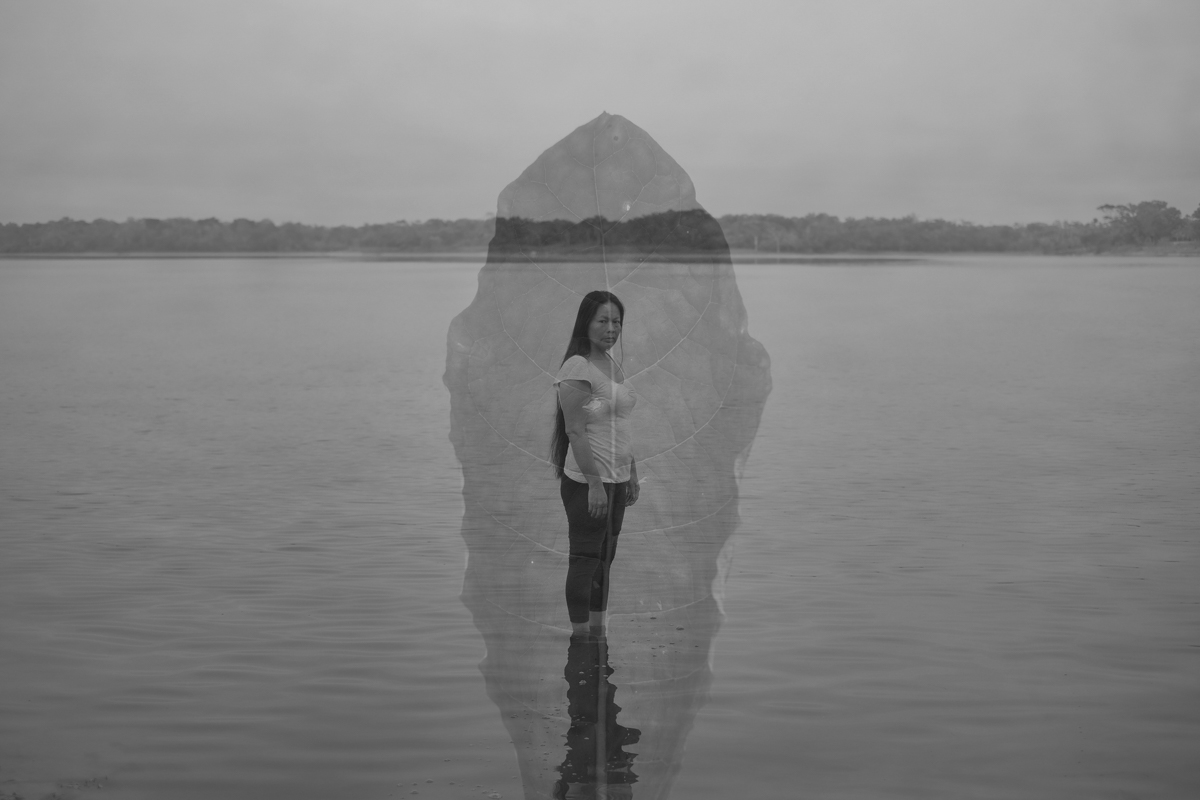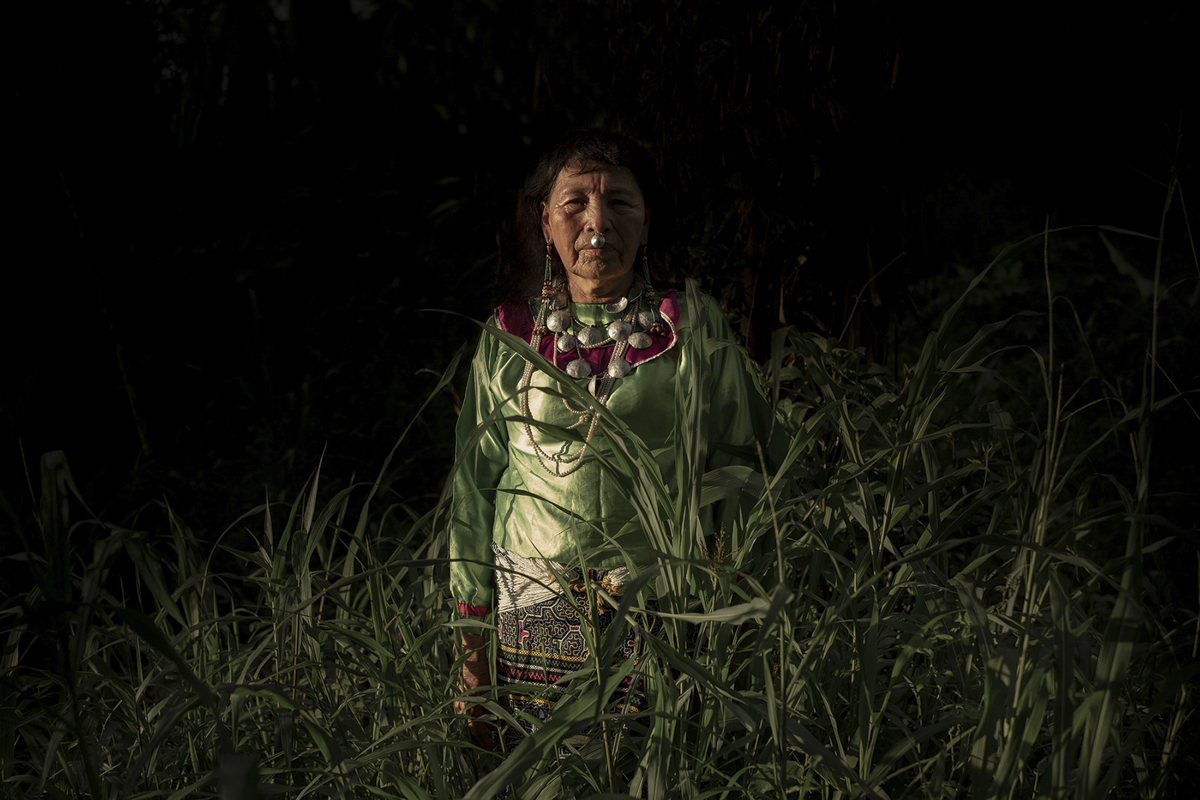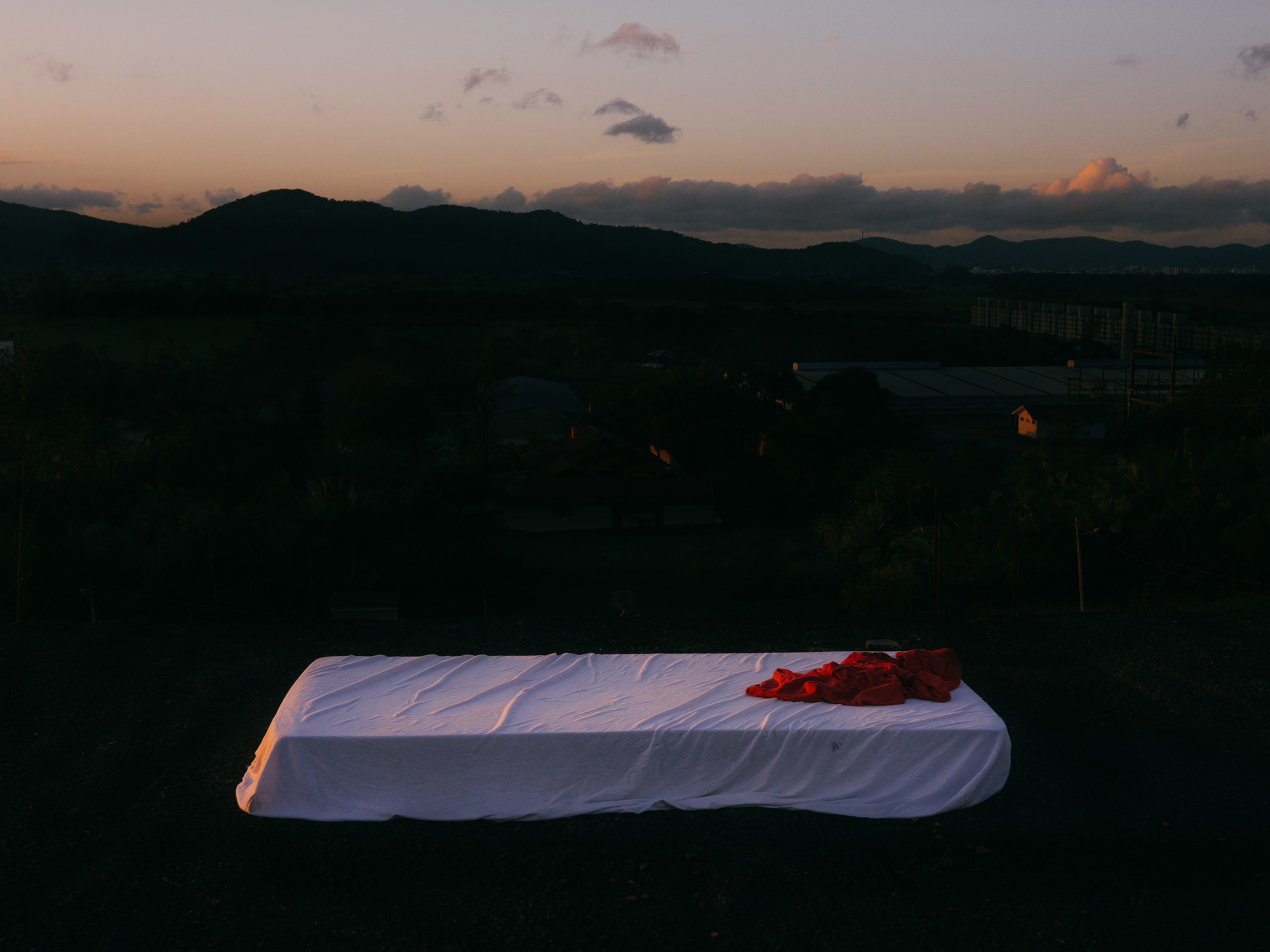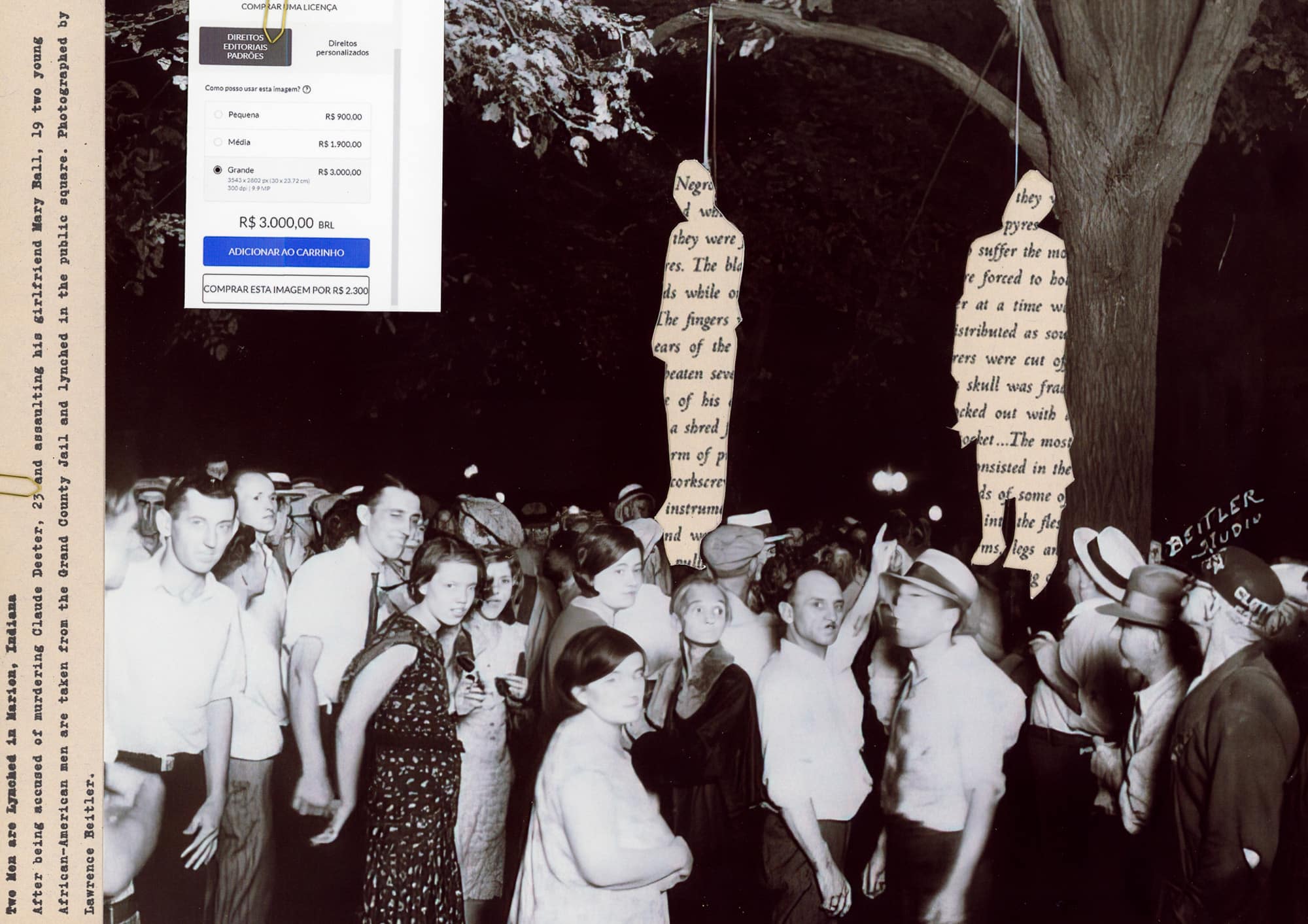When the Covid-19 pandemic started, the photographer French-peruvian Florence Goupil, warned that, if the elderly were at risk, the wisdom of the people was also at risk. Such was the case of the Shipibo, in the Peruvian Amazon, a people with whom she has built a relationship for more than two decades. There, the greatest are respected and are the ones who know the most about the use of plants and their properties. “Many families have lost their grandparents and it has been a cultural disaster, they say ‘our walking libraries are leaving,” says Florence. From there she arises The Healing Plants, a work in which she addresses the use of traditional herbal medicine as a door to the diversity of the flora of the Shipibo-Konibo.
From an Andean mother and a French father, Florence was born in Peru, trained in Art History at the Denis Diderot University in Paris and graduated in Editorial and Multimedia Design at L’École Supérieure des Beaux-Arts in Rennes. She worked in Hecho en Bs.As. (Made in Buenos Aires), an Argentine solidarity magazine that offers homeless people the opportunity to earn a decent income. Later, she founded the NGO Kapé with a French friend, to clean a lagoon in the Peruvian Amazon.
According to her, she grew up in a “very matriarchal” family. Her grandmother raised her by telling her “stories full of magic.” Therefore, when she met the Shipibo Gabriel and Celinda, she did not hesitate to open her arms. “They, somehow, direct my gaze towards something much more intimate: the photography I take with them is not fully documentary, but rather I explore their worldview, their relationship with nature.” Everything, for her, always comes back to earth.
Her work was published in PhMuseum, National Geographic, BBC, Le Monde, among others. In 2020 she was nominated for the Joop Swart Masterclass of World Press Photo and received a grant from the National Geographic COVID-19 Emergency Fund for Journalism in Peru, where she is now. In 2020 she won scholarships from Getty Images Reportage and the Pulitzer Center Rainforest Journalism Fund.
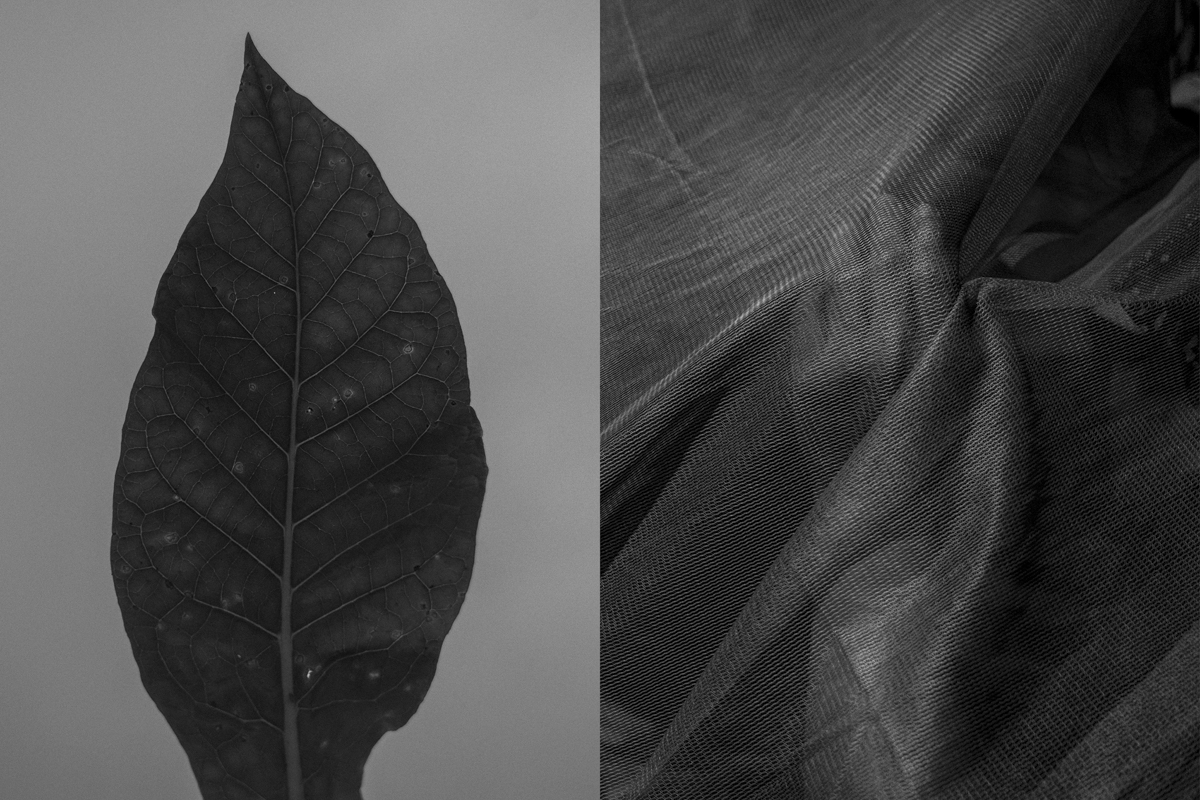
Is interesting the premise from which you start for your work during the pandemic. That question about what will happen to the wisdom of the original grandparents regarding healing with plants if the Covid advances on them.
Within the Shipibo culture you are more respected the older you are. So, the grandparents are very dear and very cared for by them. In their society, even if they are from the city, they live with their grandparents and adore them. And in addition, the grandparents are the ones who transmit to the children the relationship, the connection with the plants, with the forest and with all the biodiversity. They are also the ones who keep the original language. Like every language is changing but the grandparents keep it alive, they are a source of knowledge. Without them there is no tradition, and this disease is mainly attacking the oldest ones.
Many, many families have lost their grandparents and it has been a cultural disaster. They say: “our walking libraries are leaving.” The grandparents are the ones who know the exact use of the plants; they are the ones who remember the best, because they have inherited that knowledge also from their grandparents.
If the grandparents are not there, then there is no one to teach the young people about plants, nor the names of the plants, nor the concept behind the name, nor how they are used.
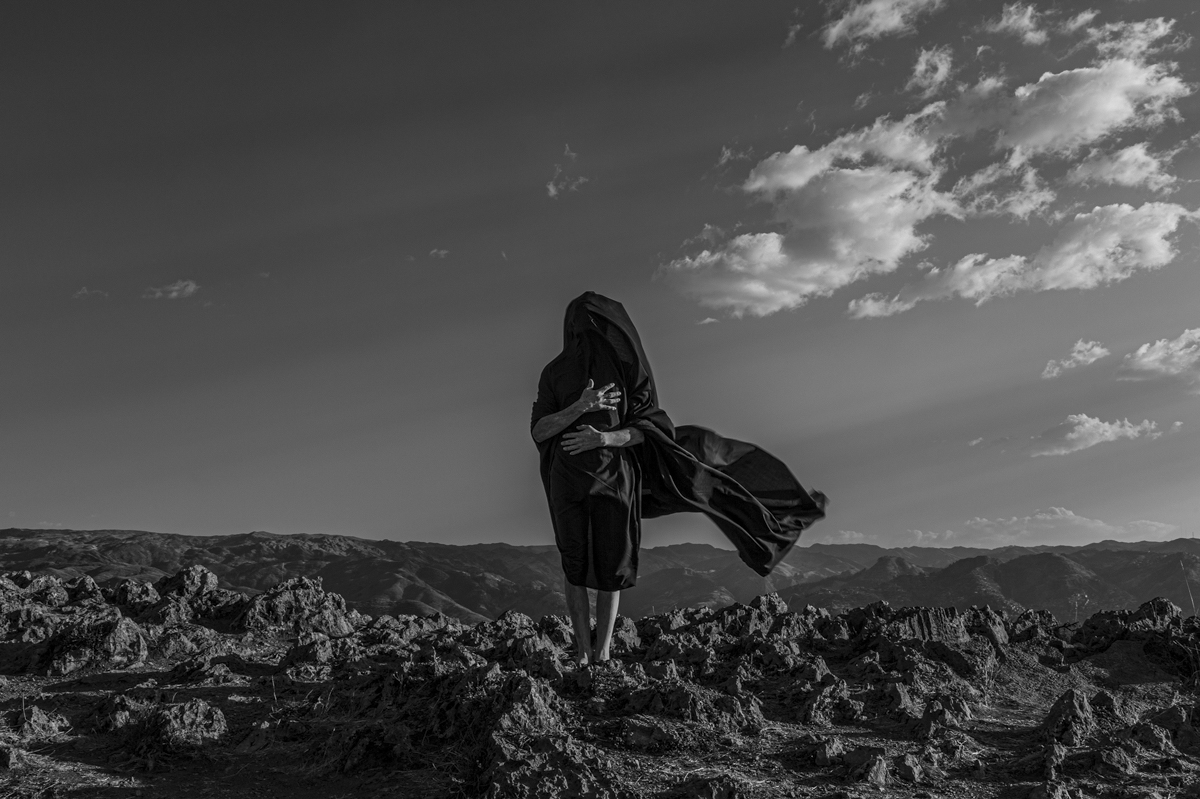
“She, my grandmother, raised me by telling me stories full of magic.”
As soon as the pandemic began, you reached out to the community through two personal stories. Would you like to tell us a little more about the approach process?
Their names are Gabriel Senencina and Celinda Cahuaza, they are a Shipibo couple that I met when I was 20 years old. More than ten years ago. Since then I have walked a lot with them, for various reasons.
I never thought I would portray them. This project was not the product of an initial idea, but rather due to fate, the process took place. We have traveled together in the Amazon, we have done some environmental projects like cleaning a lagoon in 2016. And, from that, I realized that we created strong bonds of friendship. They asked me to take certain photos of them.
They, somehow, direct my gaze towards something much more intimate because the photography I take with them is not fully documentary, but rather I explore their worldview, their relationship with nature. They ask me, they point it out to me: the tree means this, the sky indicates this, the bird that passed by and made such a sound for us is a sign of such a thing. With all this information, me with the camera and them pointing, I consider that I became a photographer because of them.
I am Franco-Peruvian and my grandmother’s branch comes from the Andean Quechua world. She, my grandmother, raised me by telling me stories full of magic. When I had the opportunity to spend time with Gabriel and Celinda, I didn’t hesitate for a second.

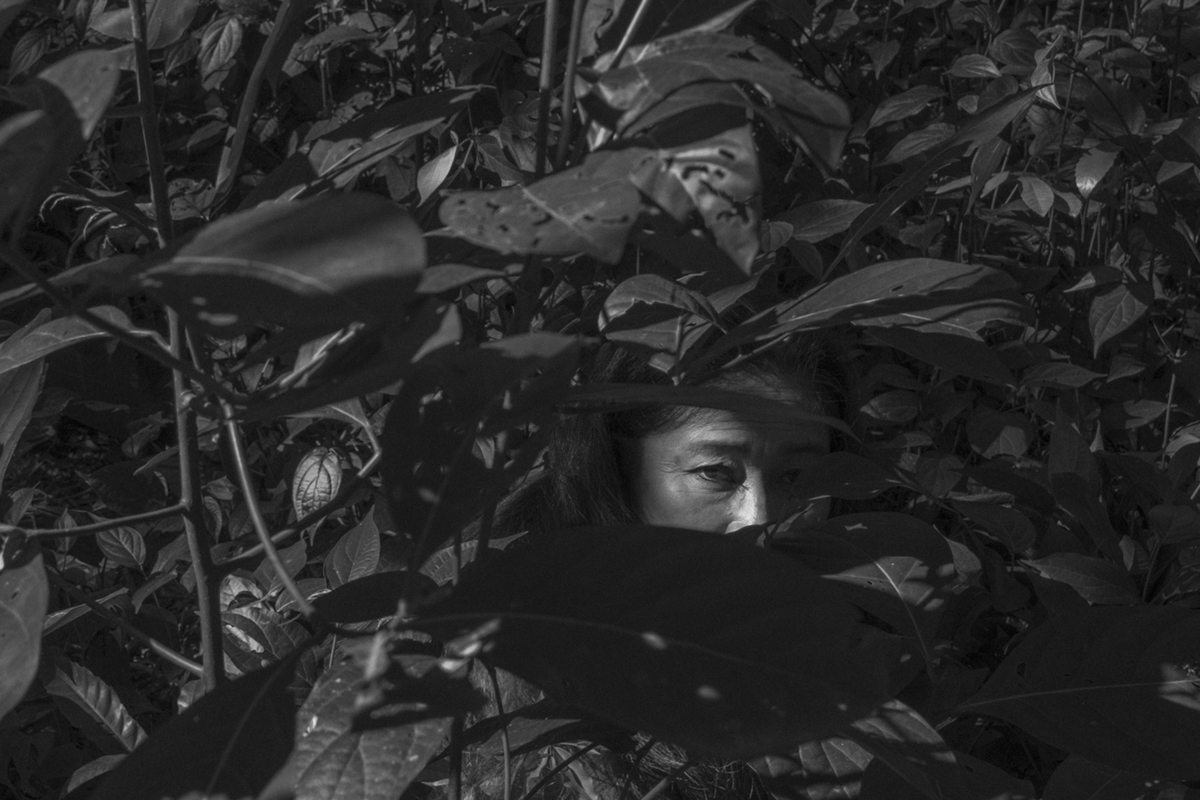
You did your universitary education in France, right?
Yes. I was born in Lima and when I finished school, the plan was for me to go to France to live with my French family. My parents were separated. So I always knew that my life would continue in France because they prepared me for that. The French school teaches you to live in France, not to stay in Peru. It is quite complex.
So I went to France where I did university studies. And then I reached a point in my life where I realized that my life was not there, that I wanted to dedicate myself to a more personal photography. So I returned to Peru and made the great decision to dedicate myself to photography because I didn’t do it before, I had other jobs. From the moment I returned to Peru I dedicated myself to photojournalism and authoral photography.
Gabriel and Celinda told you about their worldview through everything that surrounds it. What did they teach you about plants?
I have heard many people talk about the relationship of the Shipibo with biodiversity and they always emphasize that it is a belief, in the texts they always say “according to they…” But, in this case, I would love to remember that for the Shipibos, just as we rely on certain certainties regarding what we eat or how we work, for them plants are people, they treat them as equals. They are persons. And it is not that it is a belief, but it is that as they have lived forever. For them everything has life.
I love that that’s valid. Just as we describe and see the world in our own way, so do they, but in a different way. And it is valid.
Honestly, I’ve seen my limits. I was accompanying them to the mountain and I was worried that the spiders would not bite me, worried that a snake would appear and I only saw green. Everything was the same color. They saw hundreds of colors, and I didn’t. That impressed me and made me very curious. They related to a whole living universe. That was what made me interested.
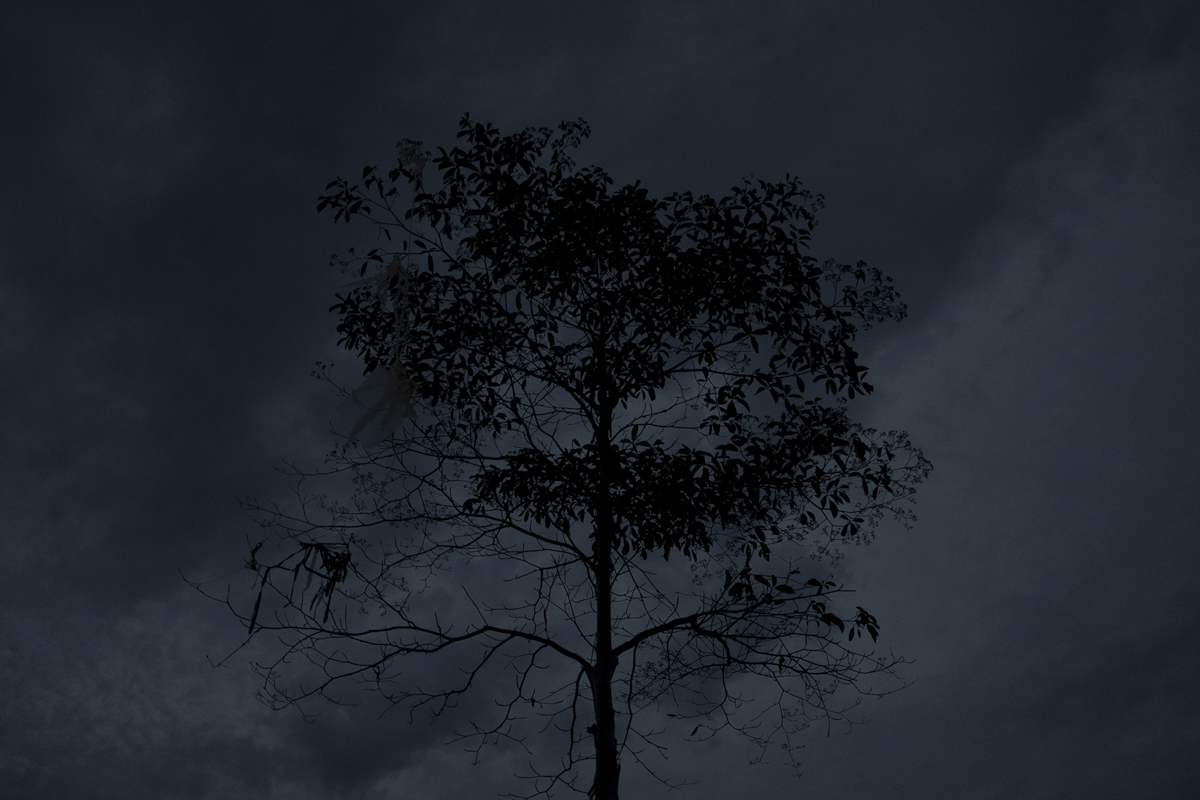
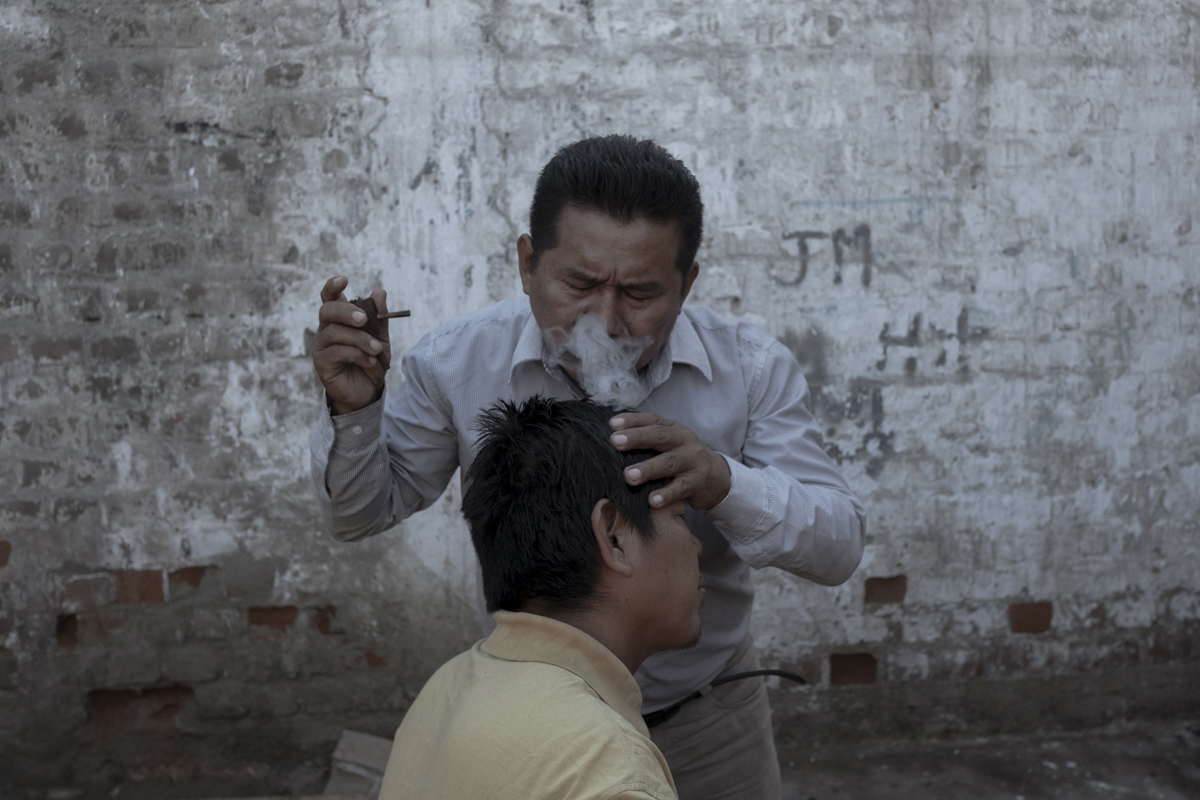
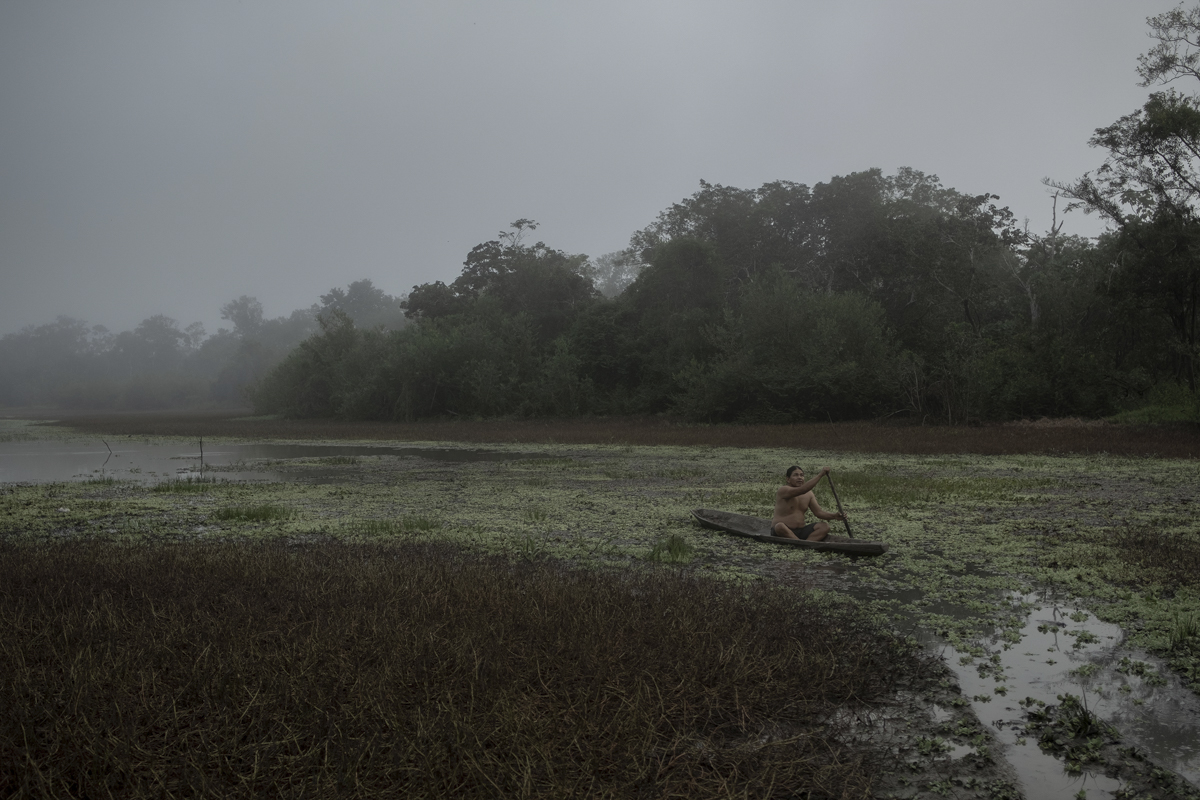
“Everything returns to earth”.
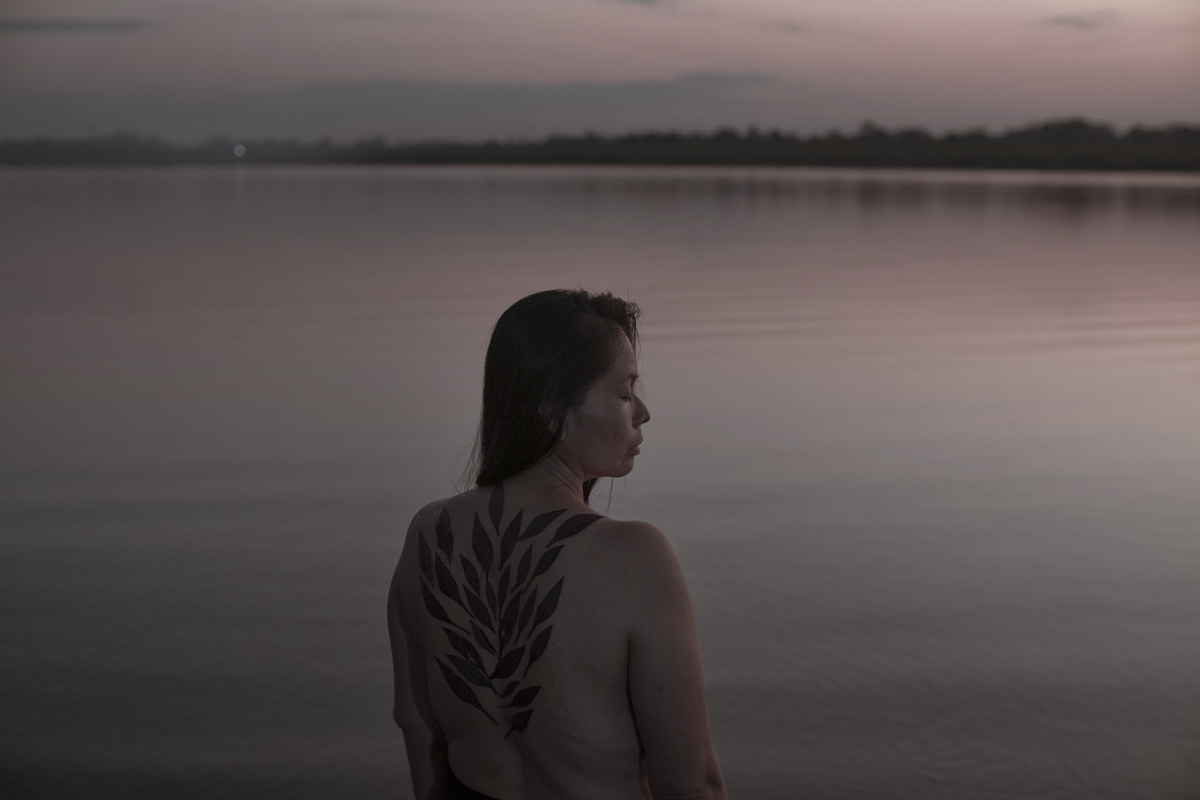
Does your work have a gender perspective?
The truth is that I come from a very matriarchal family. I worked a lot on violence against women and this year a work on indigenous women sterilized under the (Alberto) Fujimori regime has just come out. I have been working with that, always relating it to indigenous symbols. Relating the woman to the earth. In other words, I relate everything natural and biodiversity with grandmothers, mothers, with women. In the work I published on forced sterilizations in Peru, I have gone to explore the Andean worldview on fertility. It is linked to animals, land, agriculture, seeds. The women say that since their trunks were tied against their will, they can no longer cultivate the land as before. For them, they have taken away their strength, the same strength that they share with nature. Everything returns to earth.
